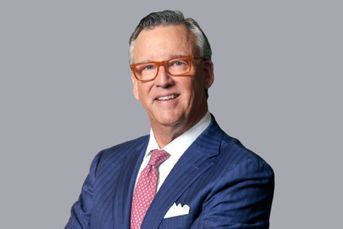Surprise – workers want higher pay

Companies say employees are 'insatiable,' but most workers say their compensation isn't keeping up with inflation, a report from Franklin Templeton found.
Employers are facing high turnover rates lingering from the pandemic’s Great Resignation, and they’re struggling to give workers what they want: higher compensation and more benefits like 401(k) contributions.
There’s a gap between companies and their workers, as employers are trying to emphasize perks like work-life balance and health care coverage, while employees are prioritizing compensation, according to a report this week from Franklin Templeton.
Most employers, 82 percent, agreed with a statement that “the workplaces of today face insatiable employees that continue to ask for more,” Franklin found. At the same time, 91 percent of companies surveyed experienced turnover rates of more than 10 percent in 2023.
Even as some employers have thrown money at benefits ranging from health care to pet insurance and financial wellness, they may not communicate those benefits very clearly to employees. And in a lot of cases, those benefits aren’t what workers prioritize.
Compensation “is sort of the most black-and-white thing they can understand from a value standpoint,” said Jacque Reardon, head of client marketing for retirement, insurance, 529 and wealth management at Franklin Templeton.
The report is based on surveys of 1,000 employers and 2,000 workers conducted last November by The Harris Poll.
In past surveys, workers have similarly shown that what they want most is higher income and 401(k) contributions – but that was the case more so than ever in the new report, Reardon said.
“This year in particular the concept of more compensation came out loud and clear,” she said. “I do think inflation has a lot to do with that.”
Seventy percent of people said that their salaries were not keeping pace with the rate of inflation, a figure that was higher among Gen Xers, at 76 percent, Reardon said. Only 29 percent of people said that they were satisfied with their compensation, and more than half, 55 percent, said higher pay would motivate them to stay at their current jobs longer. Among women, 63 percent said more compensation would encourage them to stay put, while 67 percent of all Gen Xers in the survey agreed.
However, “when employers are trying to meet expectations in a wide variety of ways … we’re finding that employees are not taking advantage of it,” Reardon said.
About half of employees said they have trouble finding out what benefits are available to them, and 72 percent said they don’t fully understand what the benefits are, the survey found.
An idea that has been coming up at employers is personalized benefits, such as offering employees a budget that could be allocated as workers see fit across health care, retirement, or other areas.
Meanwhile, workers are not shy about job hunting. A separate report this week by Express Employment Professionals found that a third of hiring managers expect to see higher levels of turnover this year, with the average cost per employee change to the company being more than $36,000.
The leading causes of workers leaving companies were better pay or benefits offered by other employers, higher demands on employees, workers simply resigning, and people feeling overworked, according to that report.
“A lot of people are assuming that [the Great Resignation] was a one-time event, and we’re still seeing ripples of that,” Reardon said. “It’s a trend that seems to be perpetuating.”
Actively managed bond ETFs are booming! Here’s why
Learn more about reprints and licensing for this article.








